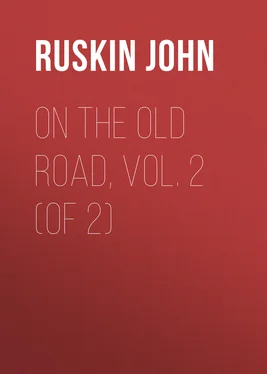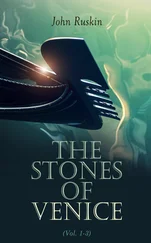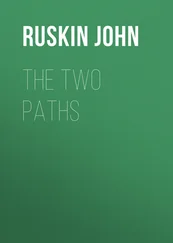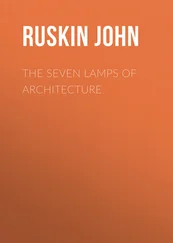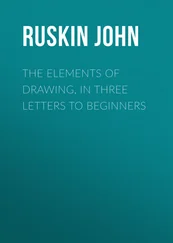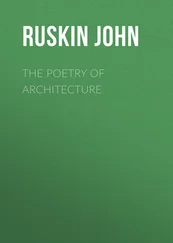John Ruskin - On the Old Road, Vol. 2 (of 2)
Здесь есть возможность читать онлайн «John Ruskin - On the Old Road, Vol. 2 (of 2)» — ознакомительный отрывок электронной книги совершенно бесплатно, а после прочтения отрывка купить полную версию. В некоторых случаях можно слушать аудио, скачать через торрент в формате fb2 и присутствует краткое содержание. Жанр: foreign_antique, foreign_home, literature_19, visual_arts, на английском языке. Описание произведения, (предисловие) а так же отзывы посетителей доступны на портале библиотеки ЛибКат.
- Название:On the Old Road, Vol. 2 (of 2)
- Автор:
- Жанр:
- Год:неизвестен
- ISBN:нет данных
- Рейтинг книги:3 / 5. Голосов: 1
-
Избранное:Добавить в избранное
- Отзывы:
-
Ваша оценка:
- 60
- 1
- 2
- 3
- 4
- 5
On the Old Road, Vol. 2 (of 2): краткое содержание, описание и аннотация
Предлагаем к чтению аннотацию, описание, краткое содержание или предисловие (зависит от того, что написал сам автор книги «On the Old Road, Vol. 2 (of 2)»). Если вы не нашли необходимую информацию о книге — напишите в комментариях, мы постараемся отыскать её.
On the Old Road, Vol. 2 (of 2) — читать онлайн ознакомительный отрывок
Ниже представлен текст книги, разбитый по страницам. Система сохранения места последней прочитанной страницы, позволяет с удобством читать онлайн бесплатно книгу «On the Old Road, Vol. 2 (of 2)», без необходимости каждый раз заново искать на чём Вы остановились. Поставьте закладку, и сможете в любой момент перейти на страницу, на которой закончили чтение.
Интервал:
Закладка:
152. There are some popular works on British birds which the men might be referred to, containing accounts of the birds and their habits, which might be referred to subsequently?—Yes.
There are several works relating to British birds which are very beautifully illustrated, and to those they might be referred; do you not think that something might also be done with regard to popular lectures upon British plants, and particularly those which are perhaps the most common, and only neglected because of their being common; that you might point out to them the different soils in which they grow, so that they might be able to make excursions to see them in their wild state?—My wish is, that in every large manufacturing town there should be a perfect collection, at all events of the principal genera of British plants and birds, thoroughly well arranged, and a library associated with it, containing the best illustrative works on the subject, and that from time to time lectures should be given by the leading scientific men, which I am sure they would be willing to give if such collections were opened to them.
I dare say you know that there is one book upon British birds, which was compiled by a gentleman who was in trade, and lived at the corner of St. James's Street for many years, which is prized by all who are devoted to that study, and which would be easily obtained for the working men. Do you not think that this would relax their minds and be beneficial to them in many ways, especially if they were able to follow up the study?—Yes, in every way.
As to plants, might not they interest their wives as well?—I quite believe so.
If such things could be done by subscription in the vicinity of large towns, such as Manchester, would they not be very much responded to by the grateful feelings of the humbler people, who themselves would subscribe probably some trifle?—I think they would be grateful, however it were done. But I should like it to be done as an expression of the sense of the nation, as doing its duty towards the workmen, rather than it should be done as a kind of charity by private subscription.
153. Sir Robert Peel. You have been five years connected with the Working Men's College?—Yes; I think about that time.
Is the attendance good there?—There is a fair attendance, I believe.
Of the working classes?—Yes; in the other lecture-rooms; not much in mine.
Do they go there as they please without going beforehand for tickets?—They pass through an introductory examination, which is not severe in any way, but merely shows that they are able to take advantage of the classes there; of course they pay a certain sum, which is not at all, at present, I believe, supporting to the college, for every class, just to insure their paying attention to it.
You stated that you did not think lectures would be of any use unless there was what you called active intermediate study?—I think not.
What did you mean by active intermediate study? if a man is working every day of the week until Saturday afternoon, how could that take place?—I think that you could not at all provide lectures once or twice a week at the institutions throughout the kingdom. By intermediate study, I mean merely that a man should have about him, when he came into the room, things that shall tempt him to look at them, and get interested in, say in one bird, or in one plant.
While the lecture was going on?—No, that might be given once a fortnight, or once a month, but that this intermediate attention should be just that which a man is delighted to give to a single plant which he cultivates in his own garden, or a single bird which he may happen to have obtained; the best of all modes of study.
154. You are in favor of the Early Closing Association?—I will not say that I am, because I have not examined their principles. I want to have our labor regulated, so that it shall be impossible for men to be so entirely crushed in mind and in body as they are by the system of competition.
You stated that you would wish the hours during which they would be able to enjoy the institutions to be as early as possible?—Yes, certainly.
But it would be impossible to have them earlier than they are now, on account of the organization of labor in the country.—I do not know what is possible. I do not know what the number of hours necessary for labor will ultimately be found to be.
Still you are of opinion that, if there was a half-holiday on the Saturday, it would be an advantage to the working classes, and enable them to visit and enjoy these institutions?—Certainly.
155. You observed, I think, that there was a thirsty desire on the part of the working classes for improvement?—Certainly.
And you also stated that there was a desire on their part to rise in that class, but not out of it?—I did not say that they wanted to rise in that class; they wish to emerge from it; they wish to become something better than workmen, and I want to keep them in that class; I want to teach every man to rest contented in his station, and I want all people, in all stations, to better and help each other as much as they can.
But you never saw a man, did you, who was contented?—Yes, I have seen several; nearly all the very good workmen are contented; I find that it is only the second-rate workmen who are discontented.
156. Surely competition with foreigners is a great advantage to the working classes of this country?—No.
It has been stated that competition is an immense advantage in the extension of artistic knowledge among the people of this country, who are rapidly stepping on the heels of foreigners?—An acquaintance with what foreign nations have accomplished may be very useful to our workmen, but a spirit of competition with foreign nations is useful to no one.
Will you be good enough to state why?—Every nation has the power of producing a certain number of objects of art, or of manufacturing productions which are peculiar to it, and which it can produce thoroughly well; and, when that is rightly understood, every nation will strive to do its own work as well as it can be done, and will desire to be supplied, by other nations, with that which they can produce; for example, if we tried here in England to produce silk, we might possibly grow unhealthy mulberry trees and bring up unhealthy silkworms, but not produce good silk. It may be a question how far we should compete with foreigners in matters of taste. I think it doubtful, even in that view, that we should ever compete with them thoroughly. I find evidence in past art, that the French have always had a gift of color, which the English never had.
157. You stated that you thought that at very little expense the advantages to be derived from our national institutions might be greatly increased; will you state why you think very little expense would be necessary, and how it should be done?—By extending the space primarily, and by adding very cheap but completely illustrative works; by making all that such institutions contain thoroughly accessible; and giving, as I think I have said before, explanations, especially in a visible form, beside the thing to be illustrated, not in a separate form.
But that only would apply to daytime?—To nighttime as well.
But would you not have to introduce a system of lighting?—Yes; a system of lighting I should only regret as applied to the great works of art; I should think that the brightest system of lighting should be applied, especially of an evening, so that such places should be made delightful to the workman, and withdraw him from the alehouse and all other evil temptation; but I want them rather to be occupied by simple, and more or less cheap collections, than by the valuable ones, for fear of fire.
If, at the British Museum, they had printed information upon natural history, that, you think, would do great good?—Yes.
Читать дальшеИнтервал:
Закладка:
Похожие книги на «On the Old Road, Vol. 2 (of 2)»
Представляем Вашему вниманию похожие книги на «On the Old Road, Vol. 2 (of 2)» списком для выбора. Мы отобрали схожую по названию и смыслу литературу в надежде предоставить читателям больше вариантов отыскать новые, интересные, ещё непрочитанные произведения.
Обсуждение, отзывы о книге «On the Old Road, Vol. 2 (of 2)» и просто собственные мнения читателей. Оставьте ваши комментарии, напишите, что Вы думаете о произведении, его смысле или главных героях. Укажите что конкретно понравилось, а что нет, и почему Вы так считаете.
